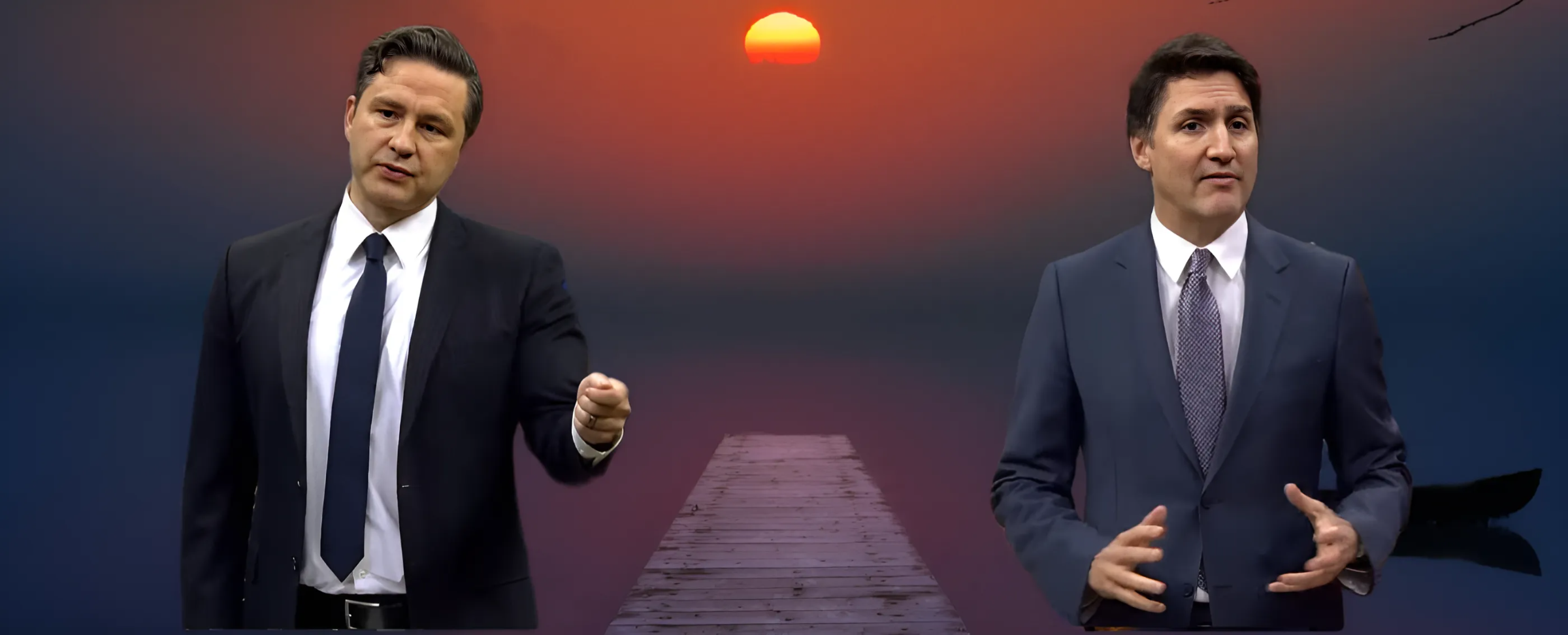Conservative Leader Pierre Poilievre addressed reporters on Parliament Hill. He delivered a broad critique of Prime Minister Justin Trudeau’s policies while outlining his party’s proposed solutions to issues ranging from housing affordability to environmental strategies.
Poilievre accused Trudeau’s government of being responsible for escalating costs of living, including housing, taxes, and basic necessities. He also targeted the Bloc Québécois for its continued support of Trudeau’s administration, claiming it failed to secure tangible benefits for Quebecers.
Poilievre took aim at the federal government’s housing policies, accusing them of driving up prices and failing to deliver new developments under initiatives like the Housing Accelerator Fund. He highlighted the doubling of housing costs, rent, and mortgage payments under Trudeau’s tenure.
The Conservative leader proposed a series of measures aimed at alleviating the housing crisis, including a permanent removal of the GST on new homes under $1 million, which he argued could save buyers up to $50,000 per home. Additionally, he committed to accelerating home construction and reducing bureaucracy to stimulate housing supply.
“We want to eliminate the GST on new houses permanently,” Poilievre said, emphasizing the need for a consistent and long-term approach. He also pledged to cut income taxes and other levies to restore the financial viability of work for Canadians.
Poilievre described the Liberal government as “inflationary,” blaming excessive spending on consultants and bureaucracy for economic woes. He claimed these policies have contributed to rising child poverty and increased reliance on food banks, with 2 million people reportedly seeking assistance.
Citing government data, Poilievre criticized the application of the carbon tax, which he linked to a 36% faster rise in food prices in Canada compared to the United States. He called for the elimination of the carbon tax, arguing that it disproportionately impacts farmers, truckers, and working-class families.
The Conservative leader framed his party as the only alternative offering “common sense solutions” to Canada’s economic challenges. Among his proposals were:
- Cutting bureaucracy and wasteful spending.
- Stimulating domestic production to reduce reliance on foreign imports.
- Focusing on energy abundance through technological innovation rather than increased taxation.
Poilievre underscored the need to leverage Canada’s natural resources by accelerating construction permits and expanding mining for strategic minerals. He also advocated for exporting natural gas to countries reliant on coal, positioning it as a win-win for economic growth and environmental responsibility.
Poilievre did not spare his criticism of the NDP and Bloc Québécois, accusing both parties of propping up a Liberal government that he described as centralizing, ineffective, and corrupt. He specifically targeted NDP Leader Jagmeet Singh, claiming Singh reneged on promises to withdraw support for Trudeau in exchange for political benefits.
“The NDP-Liberal coalition is back together,” Poilievre said, describing their policies as “double trouble” for Canadians due to rising costs and declining quality of life.
When questioned about the Conservative Party’s stance on environmental issues, Poilievre highlighted the importance of balancing sustainability with economic growth. He criticized reliance on coal-burning nations like China for resources and proposed an approach focused on energy abundance, increased domestic production of minerals, and exporting clean energy.
“We’re the only party with an energy plan that focuses on abundance and technology rather than taxes,” he said.
Poilievre closed by painting a picture of a Canada where hard work is rewarded with greater paychecks, affordable housing, and safer neighborhoods. He called on Canadians to support the Conservatives as a means to “bring home Canada’s promise.”
Meanwhile, Trudeau, joined by Deputy Prime Minister Chrystia Freeland, hosted a news conference in the Greater Toronto Area
Trudeau and Freeland presented a holiday-season tax relief package intended to ease inflationary pressures. Specific items targeted for temporary tax breaks include heating fuel, select groceries, and children’s clothing. Trudeau called the plan a “practical step” to help families during the peak of winter expenses.
The prime minister also defended his government’s broader strategy to address housing affordability, pointing to the Housing Accelerator Fund as a long-term solution despite criticisms of its slow rollout.
“These measures are part of our commitment to support middle-class families,” Trudeau said. “We recognize the challenges Canadians face, and we are here to deliver meaningful solutions.”
With the next federal election potentially on the horizon, affordability is likely to remain a pivotal issue in shaping voters’ decisions.
As the events unfolded in different regions of the country, the contrasting messages highlighted the stark choices Canadians face: continued incremental reforms under Trudeau’s Liberals or a dramatic shift in fiscal policy with Poilievre’s Conservatives.
The stakes are high, and the battle for Canada’s economic future is well underway.

